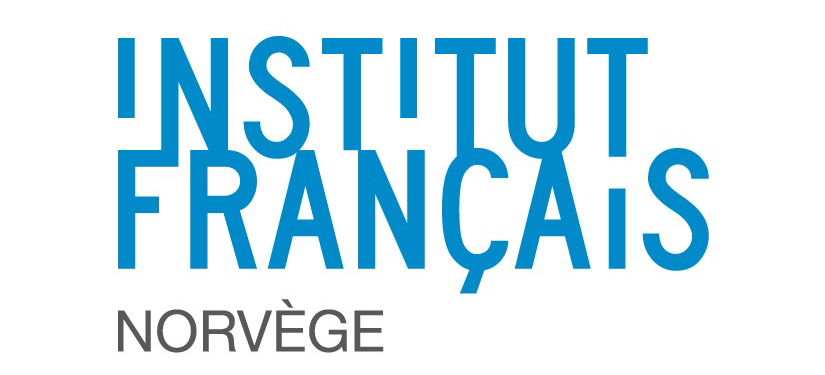Your cart is currently empty!

8 Strange French Words with Meanings Foreigners Cannot Guess
I am French and have been living in Norway for almost 10 years, and mostly blogging about Norway, Norwegian culture and language. But more and more I get questions about my own country, society and language. How is it to be a foreigner and especially a Norwegian in France? Is it hard to learn French? So in collaboration with the French cultural and education institution Institut Francais de Norvège, I have decided to give you a few cookies to chew on. Try to guess the meaning of these French words!
- Un bateau-mouche (A boat-fly)
As a child when I was visiting my grand mother in Paris she told me she would take me on a trip on a “boat fly”. I was so happy, I was going to sail on a real fly but on the sea. I did not understand at that time that there is no sea in Paris, and there are no boats in shape of flies, let alone flies taking you on sailing trips. A “bateau-mouche” is one of those boats navigating around on the Seine river, very flat and narrow so as to pass under the bridges. It was fun anyway!
2. Un pot-de-vin (A pot of wine)
“He received a pot of wine to accept the contract”. What does that mean? In ancient times it just meant giving a tip, because that would mean the recipient would owe you one. But nowadays in French it means giving money illegally to someone for them to do you a favor. Usually also illegal. It is basically what we would now call corruption and bribery.
3. Un beau-frère (A handsome brother)
This word declines into many others. Belle-soeur, belle-mère, beau-père. It does not actually mean beautiful sister, beautiful mother, beautiful father, but sister-in-law, mother-in-law, father-in-law, and in this case brother-in-law. Although you might not find him that handsome if he is married to your sister!
4. Un bain-marie (A Marie bath)
Cooking something in a “bain-marie” means to put a smaller pot in a bigger one filled with water, so that what is inside the smaller pot cooks slower. For example in France one often melts chocolate this way, to avoid burning it. Caramel pudding, to name something eaten in Norway, is usually baked in a “bain-marie” in the oven, and one hence places the cake form in the oven inside of a bigger shaped form filled with water.
5. Un tire-fesses (A bum puller)
This word is quite literal, and should not be that hard to understand, but it can be out of its context, if one does not know that it is used only when skiing. The ski lift is actually pulling you up a snowy hill by your bum, as you are sitting on it. Happy skiing!
6. Un casse-bonbon (A candy-breaker)
This one sounds like a sweet expression but comes from quite a vulgar and unpolitically correct expression. “Bonbon” means “candy” but in this specific case it means testicles. In French when something or someone is very annoying, one says he or she is “breaking my testicles”. In this softer version he or she is “breaking candy”. Meaning the same thing, just with nicer words.
7. Un abat-jour (A day feller)
Breaking the day seems quite dramatic. In this case it just names the lamp shade on such a lamp. If you think about it it does break the day, or the light coming from the bulb inside of it.
8. My name
And the last one is my own name. Can you guess which three words seem to have been put together to create my first and last name?
In collaboration with:
In accordance with Norwegian laws, I need to stipulate that this is a sponsored post.

Comments
10 responses to “8 Strange French Words with Meanings Foreigners Cannot Guess”
-
L’or, Le loup, Le jardin
Lorelou desjardinsHvem er Charles dans Le Jardin?
-
Carl (I)var Hagen.
-
Solene
-
I am trying to learn French.I like it.This is help ful for me.Thanks.
-
-
-
Your name: D’or + loup + jardin.
-
Thanks! Interesting
-
I just googled the origin of “bain-marie”, something I’ve thought of doing several times before it popped up on your blog today. Interestingly it dates way back to Hellenic times, thanks to one of the first chemists, Maria the Jewess (aka Marie Prophetissima) who is credited with being the first ever true alchemist and inventing various chemistry processes and equipment, including the bain marie. A pioneering woman in the sciences that I had never heard about, from somewhere between the 1st and 3rd centuries A.D. Good to hear from you Lorelou – I’m such a fan of your terrific blog
-
Or-or : Aurore
-
Or hurler fleurs
Aurelie Fleur? -
Hei,
Dette er (kun) hva jeg mener … Skriver på direkte … Unnskyld Norsken.
Etternavn er vanskelig å finne hva det egentlig betyr og hvor de kom ifra.
Hver region i verden og historie gi (normal) en forklaring.
Hvis vi undersøk dette, er fransk etternavn knyttet til lokal historier og kultur.
I Frankrike var språket annerledes i år tusen enn i dag. Bakgrunn, omgivelse, referanser, tro, osv. var helt forskjellig enn den vi har i dag. I tillegg var mange som ikke kunne skrive og de som kun var ikke alltid god med dette. (Prøv å lese en dokument fra 1500 tall …). Språk og skrift «utvikles» også med tiden, i Norge og.
Vel, etternavn «Desjardins» virker enkelt å «oversette», men det er (for meg) mye usikkerhet med det.
Mitt etternavn er «Malivernat» og for en franske i 2020 er dette enkelt, «Dårlig/vond vinter» … men det er ikke det. På fransk i 1300 tall, det betyr «Stedet der alders vokser dårlig».
Mvh,
Denis

























Leave a Reply to Arne Meltvik Cancel reply